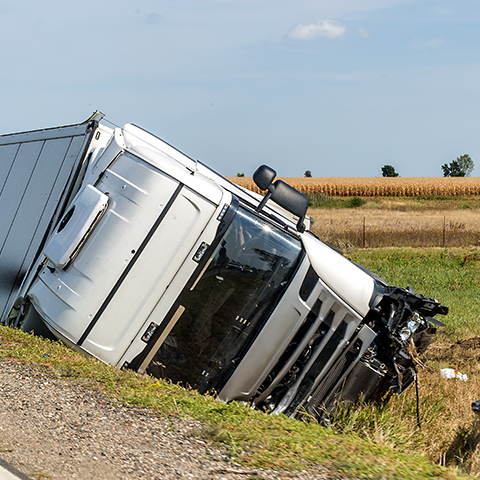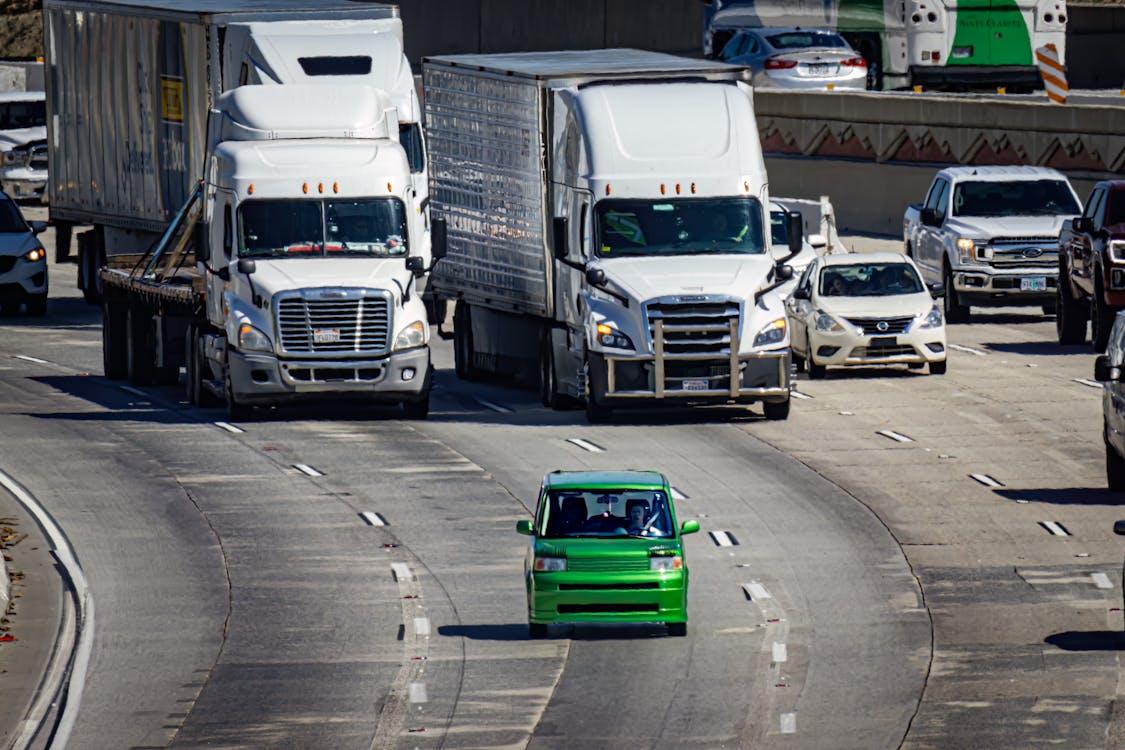

Truck accidents often involve complex legal frameworks due to the sheer size and potential damage these vehicles can cause. Understanding the nuances of truck accident laws and regulations is crucial for victims seeking justice. Whether you're a victim or a lawyer specializing in this field, it’s essential to grasp both federal and state-specific guidelines that govern trucking operations.
The Federal Motor Carrier Safety Administration (FMCSA) sets national standards for commercial trucks. These regulations cover various aspects such as driver qualifications, vehicle maintenance, and hours of service (HOS). The HOS rules are particularly critical as they limit the number of hours a truck driver can operate before taking mandatory breaks. Violations of these regulations can serve as compelling evidence in personal injury lawsuits, underscoring the importance of thorough investigation.
Given the intricate web of federal and state regulations coupled with multifaceted liability issues, engaging an experienced truck accident lawyer becomes indispensable. Such lawyers possess specialized knowledge that helps navigate through complex legal waters efficiently while maximizing compensation claims for victims. Their expertise includes negotiating with insurance companies who often aim to minimize payouts by exploiting legal loopholes or procedural errors on part of victims' representation.
Understanding truck accident laws requires an integrated approach encompassing federal guidelines and state-specific statutes along with strategic gathering and presentation of evidence—all orchestrated under expert legal guidance.
Sacramento is the capital city of the U.S. state of California and the seat of Sacramento County. Located at the confluence of the Sacramento and American Rivers in Northern California's Sacramento Valley, Sacramento's 2020 population of 524,943 makes it the fourth-most populous city in Northern California, sixth-most populous city in the state, and the ninth-most populous state capital in the United States. Sacramento is the seat of the California Legislature and the Governor of California.
Sacramento is also the cultural and economic core of the Greater Sacramento area, which at the 2020 census had a population of 2,680,831, the fourth-largest metropolitan area in California.
Before the arrival of the Spanish, the area was inhabited by the Nisenan, Maidu, and other indigenous peoples of California. In 1808, Spanish cavalryman Gabriel Moraga surveyed and named the Río del Santísimo Sacramento (Sacramento River), after the Blessed Sacrament. In 1839, Juan Bautista Alvarado, Mexican governor of Alta California, granted the responsibility of colonizing the Sacramento Valley to Swiss-born Mexican citizen John Augustus Sutter, who subsequently established Sutter's Fort and the settlement at the Rancho Nueva Helvetia. Following the American Conquest of California and the 1848 Treaty of Guadalupe-Hidalgo, the waterfront developed by Sutter began to be developed and incorporated in 1850 as the City of Sacramento. In 1852, the city offered its county courthouse to the state of California to house the state legislature, resulting in the city becoming the permanent state capital in 1854 and ushering in the construction of a new state capitol building which was finished in 1874.
Sacramento is the fastest-growing major city in California, owing to its status as a notable political center on the West Coast and as a major educational hub, home of California State University, Sacramento and UC Davis. Similarly, Sacramento is a major center for the California healthcare industry, as the seat of Sutter Health, UC Davis Medical Center, and the UC Davis School of Medicine. In 2013, the Sacramento Convention and Visitors Bureau stated that the city receives 15.3 million visitors per year, and is home to the California Museum, Crocker Art Museum, California State Railroad Museum, California State Capitol Museum, the Sacramento Convention Center, and Old Sacramento State Historic Park. It was a global city, designated at the Gamma − level in 2020.

When you're involved in a truck accident, the aftermath can be overwhelming.. Beyond dealing with potential injuries and damages, you must navigate the complex web of legal responsibilities and rights.
Posted by on 2024-09-25

Managing Medical Bills and Financial Losses Post-Accident Experiencing a truck accident is an overwhelming ordeal that can turn your life upside down in the blink of an eye.. Beyond the physical pain and emotional trauma, there lies another daunting challenge: managing the avalanche of medical bills and financial losses that follow.
Posted by on 2024-09-25

When it comes to truck accidents, the aftermath can be catastrophic, often leading to severe injuries or even fatalities.. For victims seeking justice and compensation, proving negligence is an essential step.
Posted by on 2024-09-25

Choosing the right truck accident lawyer can make a significant difference in the outcome of your case.. Truck accidents are often more complex than regular car accidents due to the involvement of commercial entities, intricate regulations, and potentially severe injuries.
Posted by on 2024-09-25
Gathering evidence is crucial in truck accident claims, as it forms the foundation of a strong case. Evidence can include photographs from the accident scene, police reports, witness statements, and data from the truck's electronic logging device (ELD). Each piece of evidence contributes to constructing a detailed narrative of how the accident occurred and who was at fault.
There are various types of evidence that can be used to support a truck accident claim. Physical evidence such as tire marks on the road or damage to vehicles can provide tangible proof of what happened during the collision. Digital evidence, including surveillance footage and cellphone records, can also play a vital role in corroborating witness testimonies or pinpointing negligent behavior by either driver.


Finding the right truck accident lawyer near me requires a bit of homework but it’s a crucial step towards getting the compensation and justice you deserve. Remember to do thorough research, understand the fee structure, and set realistic expectations from the initial consultation. With the right lawyer by your side, navigating the complexities of your truck accident case can be much more manageable. Here's to hoping you find the legal warrior you need to tackle the challenges ahead.
When searching for a truck accident lawyer, it is crucial to find someone who has extensive experience specifically in truck accident cases. Truck accidents involve unique factors such as commercial vehicle regulations, driver logbooks, and mechanical inspections that differ significantly from typical car accidents. An experienced lawyer will be familiar with these nuances and know how to navigate them effectively to build a strong case on your behalf.
The reputation and track record of a lawyer can provide valuable insights into their ability to handle your case successfully. Look for lawyers who have a history of favorable verdicts or settlements in truck accident cases. Client testimonials and peer reviews are also excellent resources for gauging a lawyer’s reliability and effectiveness. A well-respected attorney is more likely to command attention from insurance companies and opposing counsel, potentially leading to better outcomes.


The moments following a truck accident can be chaotic, yet they are crucial for laying the groundwork for any future legal proceedings. Immediately after ensuring everyone's safety, it's important to gather as much evidence from the scene as possible. This includes taking photographs of the vehicles involved, road conditions, and any visible injuries. Collect contact information from witnesses and exchange details with other parties involved in the accident. Documentation such as police reports and medical records will also serve as critical pieces of evidence later on.
Even if injuries appear minor at first glance, seeking prompt medical attention is essential. Hidden injuries like internal bleeding or traumatic brain injuries might not manifest symptoms immediately but can have long-term repercussions. A thorough medical evaluation provides not only necessary treatment but also detailed documentation that might be pivotal in proving your case later on. Always keep copies of all medical bills, prescriptions, and related documents as these will support your claims for damages.
Truck accidents often result in severe consequences due to the sheer size and weight of these vehicles. Understanding liability in such incidents is crucial for victims seeking compensation. Unlike regular car accidents, truck accidents involve multiple parties and layers of responsibility, making it essential to identify all liable parties accurately.
One of the complexities in truck accident cases is the involvement of various parties who could be held responsible. These may include the truck driver, trucking company, cargo loaders, maintenance firms, and even vehicle manufacturers. The driver might be liable if distracted or impaired driving led to the accident. On the other hand, trucking companies can be at fault for negligence in hiring practices or failure to adhere to safety regulations.

After a truck accident, ensure everyones safety and call emergency services. Document the scene with photos, gather contact information from witnesses, seek medical attention even if injuries seem minor, and consult a truck accident lawyer before speaking to insurance companies.
A truck accident lawyer can investigate the incident, gather evidence, identify liable parties, negotiate with insurance companies on your behalf, and represent you in court if necessary to secure fair compensation for your injuries and damages.
You may be entitled to compensation for medical expenses, lost wages (both current and future), property damage, pain and suffering, emotional distress, and in some cases punitive damages if gross negligence is proven.